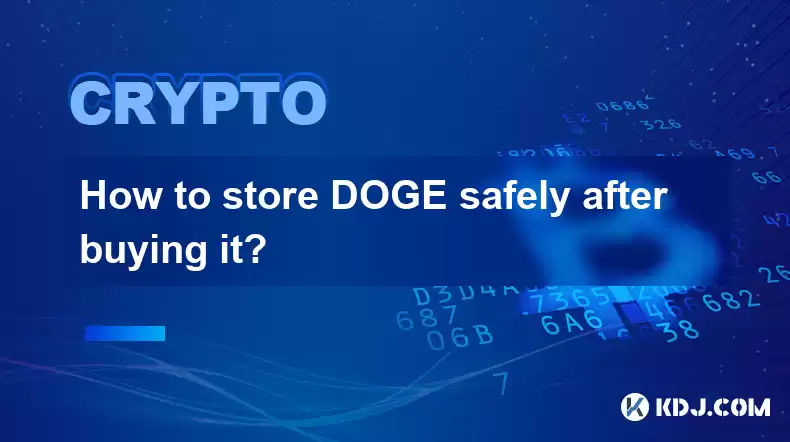-
 Bitcoin
Bitcoin $119300
1.07% -
 Ethereum
Ethereum $3730
3.87% -
 XRP
XRP $3.235
0.29% -
 Tether USDt
Tether USDt $1.000
0.00% -
 BNB
BNB $783.5
1.88% -
 Solana
Solana $188.7
0.25% -
 USDC
USDC $0.0000
-0.01% -
 Dogecoin
Dogecoin $0.2399
-0.44% -
 TRON
TRON $0.3157
2.37% -
 Cardano
Cardano $0.8254
1.94% -
 Hyperliquid
Hyperliquid $42.83
0.14% -
 Stellar
Stellar $0.4372
3.21% -
 Sui
Sui $3.859
4.91% -
 Chainlink
Chainlink $18.53
3.53% -
 Hedera
Hedera $0.2464
0.01% -
 Bitcoin Cash
Bitcoin Cash $519.8
2.46% -
 Avalanche
Avalanche $24.24
2.17% -
 Litecoin
Litecoin $113.7
0.73% -
 UNUS SED LEO
UNUS SED LEO $8.990
0.30% -
 Shiba Inu
Shiba Inu $0.00001390
0.21% -
 Toncoin
Toncoin $3.188
1.49% -
 Ethena USDe
Ethena USDe $1.001
0.02% -
 Polkadot
Polkadot $4.090
-0.91% -
 Uniswap
Uniswap $10.40
4.08% -
 Monero
Monero $326.6
3.12% -
 Bitget Token
Bitget Token $4.627
-0.42% -
 Pepe
Pepe $0.00001281
0.76% -
 Dai
Dai $1.000
0.01% -
 Aave
Aave $291.6
0.98% -
 Cronos
Cronos $0.1269
7.26%
How to store Doge safely after buying it?
To safely store your Dogecoin, use hardware wallets like Ledger or Trezor for maximum security, or opt for software wallets like Dogecoin Core for convenience.
Apr 19, 2025 at 03:14 am

When you buy Dogecoin (DOGE), ensuring the safety of your investment is paramount. Proper storage of your DOGE can protect you from potential hacks, scams, and losses. In this article, we will explore various methods to store your DOGE safely, from using hardware wallets to understanding the security features of software wallets and exchanges.
Understanding Dogecoin Wallets
Before diving into the specifics of storing DOGE, it's essential to understand what a cryptocurrency wallet is. A Dogecoin wallet is a software program or a physical device that stores the public and private keys you need to interact with the Dogecoin blockchain. The public key is your Dogecoin address, which you can share to receive DOGE, while the private key is used to sign transactions and must be kept secret.
Hardware Wallets: The Safest Option
For those looking for the highest level of security, hardware wallets are the go-to choice. These are physical devices that store your private keys offline, making them immune to online hacking attempts. Some popular hardware wallets that support Dogecoin include the Ledger Nano S, Ledger Nano X, and Trezor.
Ledger Nano S and Ledger Nano X: These devices are user-friendly and support a wide range of cryptocurrencies, including DOGE. To set up your Ledger for DOGE:
- Connect your Ledger device to your computer and enter your PIN.
- Open the Ledger Live application and navigate to the "Manager" tab.
- Search for the Dogecoin app and click "Install."
- Once installed, open the Dogecoin app on your Ledger device.
- Use the Ledger Live application to send and receive DOGE.
Trezor: Similar to Ledger, Trezor devices are secure and support DOGE. To set up your Trezor for DOGE:
- Connect your Trezor device to your computer and follow the on-screen instructions to set it up.
- Open the Trezor Suite application and navigate to the "Portfolio" tab.
- Click on "Add Account" and select Dogecoin.
- Follow the prompts to create a new Dogecoin address and start using your Trezor to manage your DOGE.
Software Wallets: Convenience with Security
If you prefer a more convenient option, software wallets can be a good choice. These are applications that you can install on your computer or smartphone. While they are not as secure as hardware wallets, they offer a good balance between security and ease of use. Some popular software wallets for DOGE include Dogecoin Core, Trust Wallet, and Exodus.
Dogecoin Core: This is the official wallet for Dogecoin and offers a high level of security. To set up Dogecoin Core:
- Download the Dogecoin Core software from the official Dogecoin website.
- Install the software and let it sync with the Dogecoin blockchain, which may take some time.
- Once synced, you can generate a new Dogecoin address and start using the wallet to send and receive DOGE.
Trust Wallet: This is a mobile wallet that supports DOGE and is known for its user-friendly interface. To set up Trust Wallet:
- Download the Trust Wallet app from the App Store or Google Play.
- Open the app and follow the on-screen instructions to set up your wallet.
- Navigate to the "Receive" tab and select Dogecoin to generate a new address.
- You can now use Trust Wallet to manage your DOGE.
Exodus: This is a multi-currency wallet that supports DOGE and offers a sleek interface. To set up Exodus:
- Download the Exodus wallet from the official website.
- Install the software and follow the on-screen instructions to set up your wallet.
- Once set up, navigate to the "Wallet" tab and select Dogecoin to generate a new address.
- You can now use Exodus to send and receive DOGE.
Exchange Wallets: Easy but Risky
Many people store their DOGE on cryptocurrency exchanges like Binance, Coinbase, or Kraken. While this is the most convenient option, it comes with significant risks. Exchanges are prime targets for hackers, and if an exchange gets hacked, you could lose your DOGE. If you choose to store your DOGE on an exchange, make sure to:
- Enable Two-Factor Authentication (2FA): This adds an extra layer of security to your account.
- Use Strong Passwords: Avoid using easily guessable passwords and change them regularly.
- Withdraw to a Secure Wallet: If you plan to hold your DOGE for the long term, consider transferring it to a hardware or software wallet.
Paper Wallets: Old School but Secure
A paper wallet is a physical document that contains your public and private keys. While this method is less common today, it can be a secure way to store your DOGE if done correctly. To create a paper wallet for DOGE:
- Visit a reputable paper wallet generator website like WalletGenerator.net.
- Select Dogecoin from the list of supported cryptocurrencies.
- Click on "Generate New Address" to create a new Dogecoin address and private key.
- Print the generated address and private key on a piece of paper and store it in a safe place, such as a safe or a secure deposit box.
Best Practices for Storing DOGE
Regardless of the method you choose, there are some best practices you should follow to ensure the safety of your DOGE:
- Backup Your Wallet: Always keep a backup of your wallet's private keys or recovery phrase in a secure location.
- Use Strong Passwords: Use complex passwords and change them regularly.
- Keep Your Software Updated: Regularly update your wallet software to protect against known vulnerabilities.
- Be Wary of Phishing: Always double-check the URLs of websites and never enter your private keys or recovery phrases on suspicious sites.
Frequently Asked Questions
Q: Can I store DOGE on multiple wallets?
A: Yes, you can store DOGE on multiple wallets. This can be a good strategy for diversifying your risk. For example, you might keep some DOGE on a hardware wallet for long-term storage and some on a software wallet for easier access.
Q: How do I recover my DOGE if I lose access to my wallet?
A: If you lose access to your wallet, you can recover your DOGE using your private keys or recovery phrase. Make sure to keep these secure and never share them with anyone. If you're using a hardware wallet, follow the manufacturer's instructions to restore your wallet using the recovery phrase.
Q: Is it safe to store DOGE on a mobile wallet?
A: Mobile wallets can be safe if you take the necessary precautions. Make sure to download the wallet from a reputable source, enable 2FA, and keep your device's operating system and the wallet app updated. However, mobile wallets are generally considered less secure than hardware wallets due to the risk of device theft or malware.
Q: Can I store other cryptocurrencies in the same wallet as my DOGE?
A: Many wallets support multiple cryptocurrencies, including DOGE. For example, hardware wallets like Ledger and Trezor, as well as software wallets like Exodus, allow you to store various cryptocurrencies in the same wallet. Always check the wallet's specifications to ensure it supports the cryptocurrencies you want to store.
Disclaimer:info@kdj.com
The information provided is not trading advice. kdj.com does not assume any responsibility for any investments made based on the information provided in this article. Cryptocurrencies are highly volatile and it is highly recommended that you invest with caution after thorough research!
If you believe that the content used on this website infringes your copyright, please contact us immediately (info@kdj.com) and we will delete it promptly.
- Bitcoin, Jim Cramer, and the US Deficit: A Wall Street Story
- 2025-07-25 10:30:11
- TGEs, Scalability & Privacy Tech: Decoding the Future of Blockchain
- 2025-07-25 10:30:11
- Ben Askren, FUNKY Memecoin, and the Fallout: A New York Minute
- 2025-07-25 10:50:11
- TRON, Crypto Payroll, and Stablecoins: A New York Minute on the Future of Finance
- 2025-07-25 08:30:11
- WazirX, Revote, and Crypto Unlock: A New York Minute on the Latest Developments
- 2025-07-25 06:50:11
- Hong Kong Stablecoin Regulation: Navigating the Hype and Hurdles
- 2025-07-25 08:30:11
Related knowledge

What is Chainlink (LINK)?
Jul 22,2025 at 02:14am
Understanding Chainlink (LINK): The Decentralized Oracle NetworkChainlink is a decentralized oracle network designed to bridge the gap between blockch...

What is Avalanche (AVAX)?
Jul 22,2025 at 08:35am
What is Avalanche (AVAX)?Avalanche (AVAX) is a decentralized, open-source blockchain platform designed to support high-performance decentralized appli...

What is Polkadot (DOT)?
Jul 19,2025 at 06:35pm
Understanding the Basics of Polkadot (DOT)Polkadot (DOT) is a multi-chain network protocol designed to enable different blockchains to transfer messag...

What is Litecoin (LTC)?
Jul 23,2025 at 11:35am
Overview of Litecoin (LTC)Litecoin (LTC) is a peer-to-peer cryptocurrency that was created in 2011 by Charlie Lee, a former Google engineer. It is oft...

What is Monero (XMR)?
Jul 21,2025 at 10:07am
What is Monero (XMR)?Monero (XMR) is a decentralized cryptocurrency designed to provide enhanced privacy and anonymity for its users. Unlike Bitcoin a...

How to add indicators to Ethereum chart on TradingView?
Jul 19,2025 at 07:15am
What Is an Ethereum Chart on TradingView?The Ethereum chart on TradingView is a visual representation of the price movement of Ethereum (ETH) over a s...

What is Chainlink (LINK)?
Jul 22,2025 at 02:14am
Understanding Chainlink (LINK): The Decentralized Oracle NetworkChainlink is a decentralized oracle network designed to bridge the gap between blockch...

What is Avalanche (AVAX)?
Jul 22,2025 at 08:35am
What is Avalanche (AVAX)?Avalanche (AVAX) is a decentralized, open-source blockchain platform designed to support high-performance decentralized appli...

What is Polkadot (DOT)?
Jul 19,2025 at 06:35pm
Understanding the Basics of Polkadot (DOT)Polkadot (DOT) is a multi-chain network protocol designed to enable different blockchains to transfer messag...

What is Litecoin (LTC)?
Jul 23,2025 at 11:35am
Overview of Litecoin (LTC)Litecoin (LTC) is a peer-to-peer cryptocurrency that was created in 2011 by Charlie Lee, a former Google engineer. It is oft...

What is Monero (XMR)?
Jul 21,2025 at 10:07am
What is Monero (XMR)?Monero (XMR) is a decentralized cryptocurrency designed to provide enhanced privacy and anonymity for its users. Unlike Bitcoin a...

How to add indicators to Ethereum chart on TradingView?
Jul 19,2025 at 07:15am
What Is an Ethereum Chart on TradingView?The Ethereum chart on TradingView is a visual representation of the price movement of Ethereum (ETH) over a s...
See all articles

























































































